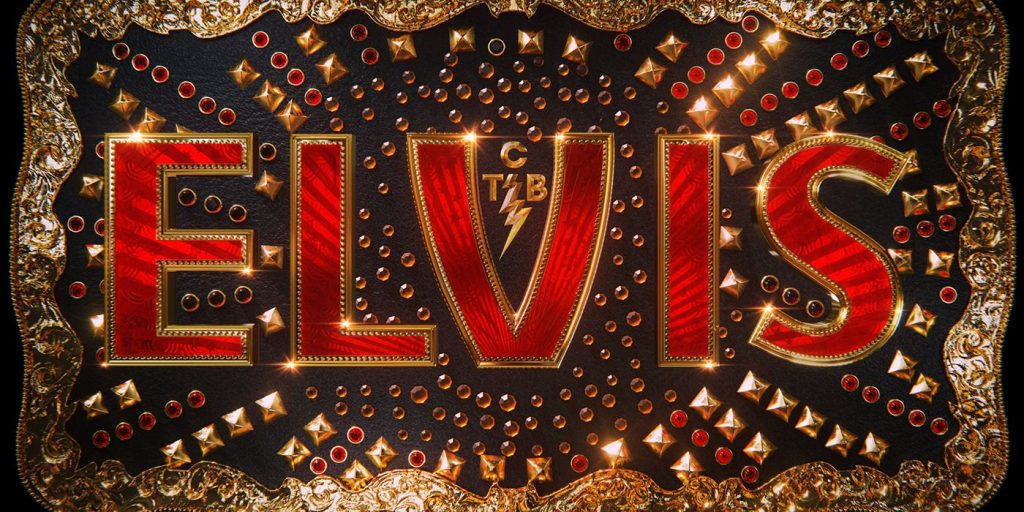
Because of my repeated various connections to Elvis, people are naturally interested in my reaction to the new Elvis movie. As a fan of the Elvis phenomenon as well as a fan of Baz Luhrmann films, I had high expectations for this film. It didn’t disappoint. I also continue to purchase movies that I like on Blu-ray and I am already planning to pick this one up. Its not a perfect film, but it’s really good and I highly recommend it to Elvis fans. I also think non-fans will enjoy it. If you’ve read this far, go and see the movie if you haven’t. You know you want to.
The film focuses on the relationship between Elvis and his manager Colonel Tom Parker. Parker is portrayed by Tom Hanks. Tom does a good job, but I think his casting was one of the weak points of the film. Parker was a large man with a thick accent. Hanks has heavy makeup to give him jowls like Parker, actually larger that Parker’s. The makeup reminds me of Mike Myers’ Fat Bastard in the Austin Powers movie, not very convincing at transforming him into a different person. I think they should have either just tried to avoid the “fat” makeup or cast someone that looked more like Sydney Greenstreet. I never fully forgot that this was Tom Hanks playing this role. Also, Colonel Parker is the “bad guy” of the story, which goes against Hanks’ image. It’s a shame that Wilford Brimley isn’t still alive because someone like him would have looked more like the Colonel and could be a convincing bad guy.
There has also been criticism of the selection of Austin Butler as Elvis. I think it was a wise choice to go with someone that was a good actor and singer but didn’t have to look exactly like Elvis. He does a good job performing some of the earlier songs on the soundtrack. More importantly, he is effective at communicating Elvis’ feelings to the audience. It a film that focuses on relationships more that recounting every big moment in a celebrity’s career, this is more important.
And anyone familiar with Elvis’ story will note that all his career highlights are not featured in the film. His early television appearances with Milton Berle and Steve Allen are included but the more memorable Ed Sullivan appearance is not even mentioned in passing. But the Milton Berle appearance furthers the idea that his performances are controversial, and the Steve Allen appearance is featured because it addresses some of the conflict in Elvis’ relationship with Parker. Major events that get the focus in the film either address Elvis’ appeal or his relationship with the Colonel. That’s why the ’68 Comeback Special gets so much attention, and the Aloha from Hawaii special is only mentioned in passing.
Luhrmann also gave callbacks to earlier Elvis films. At several points, they use multiple angles and shots on the screen at the same time. This was a technique popularized in the film Woodstock but also used in the 1972 film Elvis on Tour. Luhrmann used it in recreating some of those concert scenes, even what appeared to be some of the shots from various Elvis performance documentaries. There may have been some real shots of Elvis in the scenes, but I think they mainly relied on the shots of the crowds. There were also great efforts to match the grain of the original films to give the recreations an authentic look.
One of the items that I feel the film does well is challenge the accusations of cultural appropriation against Elvis. It shows Elvis growing up in neighborhoods where he is exposed to black culture as much or more than white culture. Black culture is culture of the neighborhood where he grew up. He was influenced by his neighborhood and the performers he saw there. The film also acknowledges that he is the beneficiary of white privilege in that he would be able to make more money with the black performer’s songs that they ever did.
The relationship with Parker takes center stage here. A lot of fans will be left with a desire for more time spent exploring his relationships with Pricilla and his mom. While they are addressed, they are like the film career and take a back seat to the struggle with Parker. There are elements of the story that seem like they could have been more for dramatic effect than historically accurate, but I don’t fault the film for attempting to be true to the struggle between the two main figures. It gives me reasons to investigate more, and to return to the documentaries original Elvis films to satisfy the gaps this film leaves out of the Elvis story.